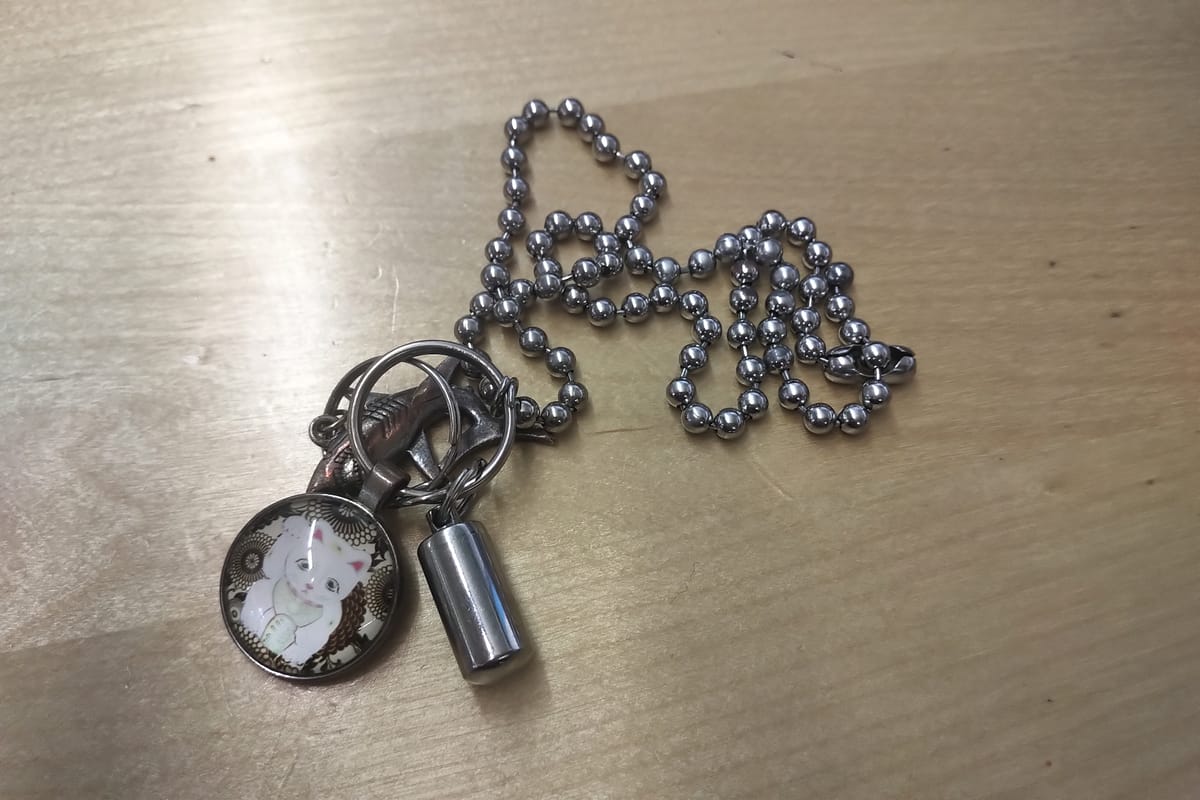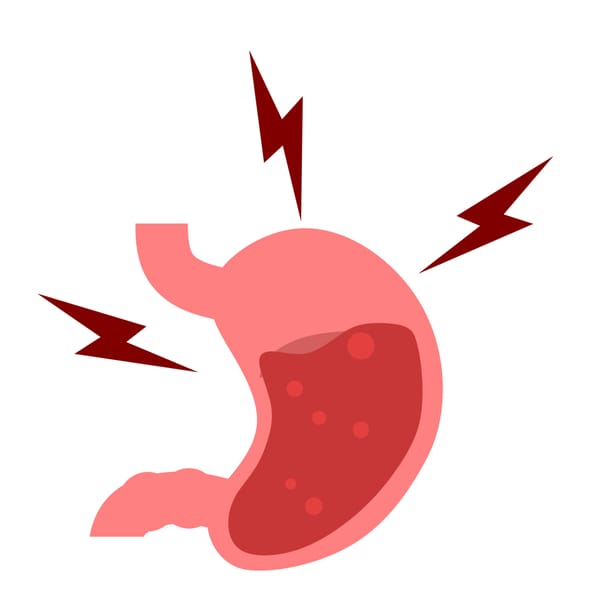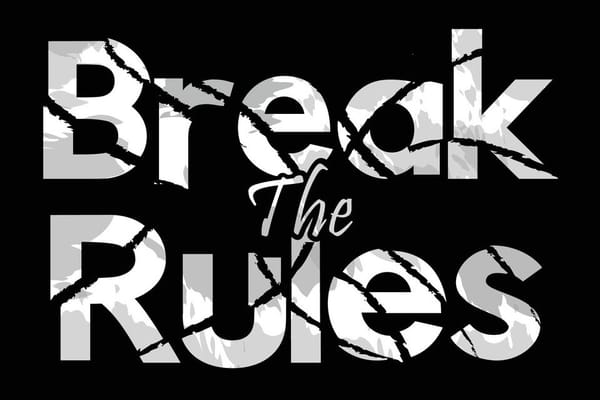The First App I Ever Downloaded Told Me I Was Going to Die
Mortality had to be burned into my lens, so that I could never forget.

"Every man dies. Not every man truly lives." - William Wallace
WeCroak.
For six years, this app has resided on my phone. Upon a minimal, dark background against thin white text, it yields gifts: quotes of wisdom and perspective. Whenever the clock finds it apt, five times per day, its notifications neither loud nor intrusive, act as somber reminders of the inevitable. The alert on your phone each time is simple: "Don't Forget, You're Going to Die."
This is as Stoic a program as you can get. It focuses not on generating business or seeking your attention. It partakes in no games. It follows a key principle of Stoicism: Memento Mori, which translates to "Remember Death." It cares not if you recall who or even what is said, as each quote is temporal, passing as soon as the next. It is not about the source or originality, but the pragmatic question of "is it true?"
WeCroak has remained as a reminder of my finity. But it only framed the portrait of this philosophy. It opened the blinds to a window which peered into the maw of our shared realizations.
To go beyond looking, and to embrace it at its core, something needed to be seared into that frame, an afterimage burned in the same way it lingers on a screen. The thoughts and understanding of death cannot be grasped solely by reading. You must meditate them into yourself.
It was not enough to remember. Mortality had to be burned into my lens, so that I could never forget.
"You are afraid of dying. But come now, how is this life of yours anything but death?" - Seneca
Early on, this fascination with the perspectives of those who had lived and died before was the focus of my phone. It had yet to grow bloated with shovelware and applications I opened once per year, so the buzzes in my pocket added extra ammunition to my lexicon.
I could chirp forever mine own insight: Death is all around. Choose to be blind to it, and dismiss its terminality, and you will be left with no time to reflect, only to wait.
Yet I forgot them. They were reminders, and that's all they remained. Insights I did not meditate on, and so on the stream of consciousness, they floated through.
"Live every day as if it were your last" is cheap. Easy to repeat and easy to ignore, a measure without a metric. Semantics and subjectivity serve no one but your delusions.
WeCroak had served as nothing more than a gateway. A stark jolt every now and then, eventually numbed by the death of its novelty. Interrupted by urgency over importance. Life always gets in the way.
When life determined its pinches were insubstantial, then came its blows.
My comprehension of death moved from surface readings to realities. Passings came, from small to stature. Acquaintances to pets to family.
It was in this stretch that the picture of death and its importance began to form from words to shape.
Death is not merely an absolute, death is a mother.
"It's Esophageal Cancer."
Three words that seared the portrait of every time I looked at her.
My mother, once vibrant and life embodied, struck the wall of that draining word. That frame of reference became impossible to ignore, because the shadow of Lady Muerte hung over her every day following that three year war against the Emperor of All Maladies.
Cancer is the paradoxical affliction. Cells which have forgotten how to die. In so they replicate, forever, consuming all that which surrounds them to nothing but their own benefit. A throat which had for decades known nothing but song and wine and argument now housed children so parasitic that they could no longer leave their nest, only consume it.
The coughing. Nights into hours uncountable. Hoarseness and worry and bouts ceaseless and terrible, making her hoarse and verging on vomit. Ambulance calls and the compiled damage which robbed her first of silence of sleep, then the melody of her voice, then her ability to speak at all. For the final three months, she lay, unable to even ask for what she needed for the inevitable desire for comfort over medicine.
In my mother's state of hospice, staring at ceilings, without words, my close friend and his wife brought their newborn girl to the house for a first and final visit.
In all those months of struggle, that was the portrait of joy. One woman lay dying, holding the infancy of one in her first breaths into her journey. Nothing communicable between the two, only the image of a life ending, passing love to a life beginning.
When her time finally came, and I had voiced that which, without the spectre of the end, that which I could not, it brought along in tow a combined grief and relief. A relief that, in the end, life could rob her of no more.
"Because of indifference, one dies before one actually dies." - Elie Wiesel
The Lady of The Night, of Death, is a radical depiction of death in comparison to western imagery. She is not a grim, stark figure on the horizon who you see and turn in terror. In Latin cultures, she is gentle and patient. She meets you at the end of your journey, so that your voyage into the afterlife is neither solitary nor frightening. She is even believed to protect you from violence of human making, so that your meeting is neither premature nor unexpected. Much like a mother.
She serves all the same purpose as any culture would know. To guide you into the beyond which we have not returned. Many may claim, but none may know what lies upon the other side, only that we take nothing with us.
Such a healthy relationship with our own finity. Not to approach with fear and terror against the tide, but with gentle acceptance. The kind not brought about in my own culture. The one I had to seek in my own morbid fascination. The one which led to the excursion. The philosophy. The application which tinged the portrait.
It was in all what followed. Documents to file and belongings to sort. Stories and artwork unfinished. Memoirs to write and speeches to practice between choked tears and frustrated pencil erasing. Every time I look in the mirror, seeing her locket of ashes and keepsake. She is always there, Santa Muerte, my picture of death.
It never hits you the same way in the moment. Once it's simmered and stained its way to your eyes. The color of the landscape has forever been burned with her image.
WeCroak opened the screen, and Stoic practices gave her silhouette. But through meditations and experience, mourning and celebration, truly being plunged into its presence, Lady Muerte's picture is there, through phone or not. Much as a distant friend whose photo is saved as your lock screen or tucked into your wallet.
But distant she is not. She is simply on the other side of the river. Neither lurking nor waving, only watching gently. Knowing that at any time, she may need to ferry across the channel to pick you up where you have fallen. She is not there to frighten you, only to remind you that you must one day hold hands through the journey beyond.
Same as she had for mother, for others, for all before us.
So that when you see the bridge, you are not met with unfamiliarity and reluctance. So that when you reach the bridge, you are not paralyzed with fear and mourning. So that when you cross the bridge to meet her, you can greet her with grace and acceptance, a kiss upon your chauffeur's bony hands. Friends of a long age, meeting for the first time.
One day, there will be no more days.
Liberation came not from letting go, but from embracing it all. From beginning with a single curiosity, an app reminded me the most important truth.
Not from trying to forget, but from the glance through the burn in, and remembering that one day the bridge will come into view.
Maybe you're not going in with anyone you know.
But you're not going into death alone.
So go on, then. Go live your life.
She’ll be there when you’re done.
--
This was written for Write of Passage, Cohort 13, Prompt 1: Zoom In.
Saturday, October 12th, 2024, marks the third anniversary of Mom's passing. Teresa Woo Murray was born a solitary daughter, and passed a sister and mother figure to four brothers, a mother to one, a musician, artist, storyteller desired, and a lover of life.
Special thanks to CansaFis Foote, Joshua Wong, and Joshua McCormick for their feedback and suggestions in this piece.
She may be gone, but this piece lives on, and may continue to grow as time moves with it.
Thank you for reading.



